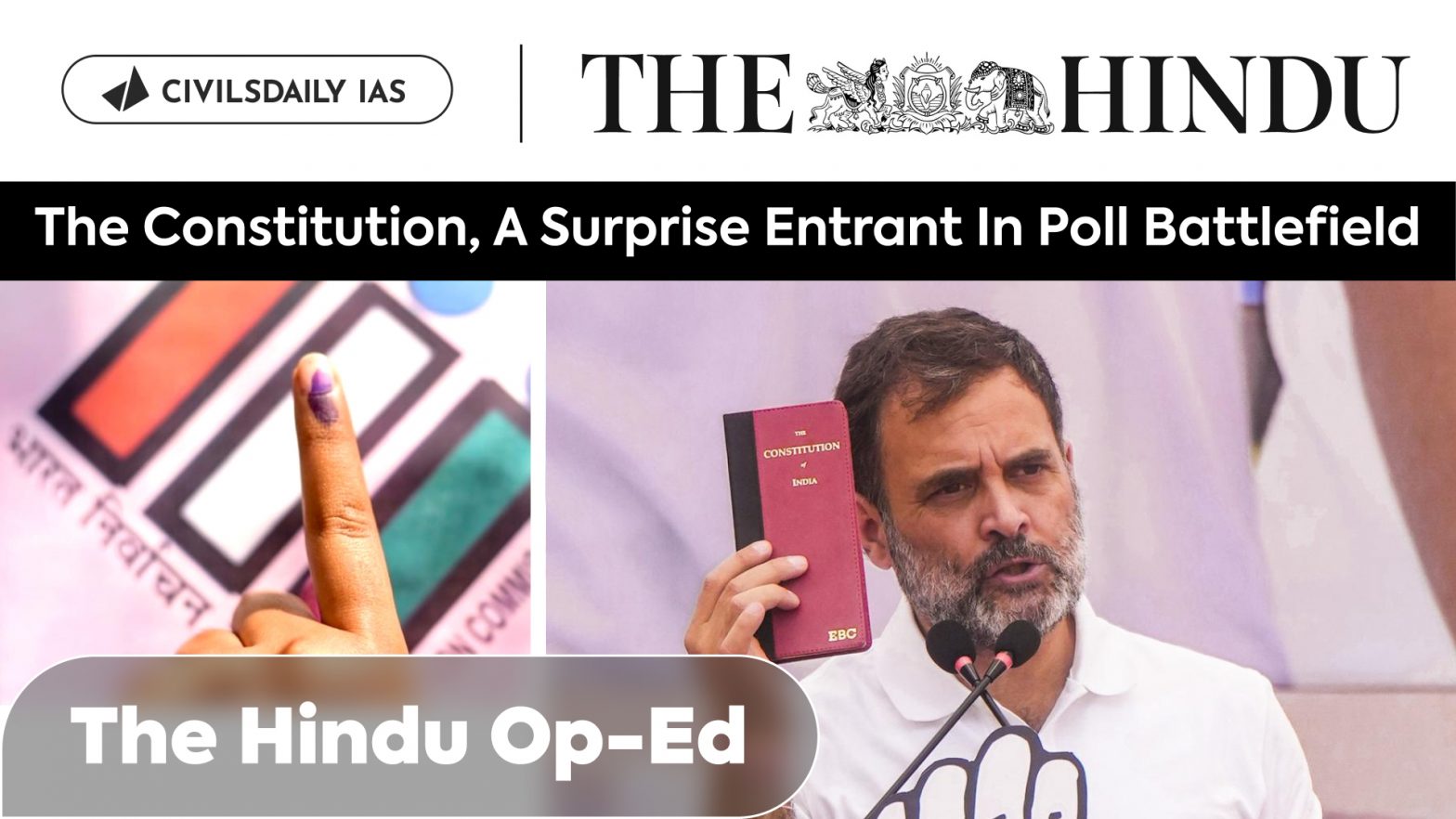| PYQ Relevance: Mains: Q. Discuss each adjective attached to the word ‘Republic’ in the preamble. Are they defendable in the present circumstances stances? (UPSC IAS/2016) Q. ‘Constitutional Morality’ is rooted in the Constitution itself and is founded on its essential facets. Explain the doctrine of ‘Constitutional Morality’ with the help of relevant judicial decisions. (UPSC IAS/2021) Prelims: Which one of the following objectives is not embodied in the Preamble to the Constitution of India? (UPSC IAS/2017) (a) Liberty of thought (b) Economic liberty (c) Liberty of expression (d) Liberty of belief |
Note4Students:
Prelims: Preamble; Constitutional Values;
Mains: Democratic Political System;
Mentor comment: Do you know what is the meaning of the word, ‘values’? You may immediately say that truth, non-violence, peace, cooperation, honesty, respect, and kindness are values, and you may continue to count many such values. In fact, in a layman’s understanding, value is that which is very essential or ‘worth having and observing’ for the existence of human society as an entity. The Indian Constitution contains all such values, the values that are universal, human, and democratic of the modern age. The constitutional values are reflected in the entire Constitution of India, but its Preamble embodies ‘the fundamental values and the philosophy on which the Constitution is based’. Political Democracy contributes to stability and continuous progress in society and it secures peaceful political change. But, during the recent General Elections, the interplay between the Constitution and political mobilization has fundamentally shaped the trajectory of democratic politics.
Let’s learn.
–
Why in the News?
The General Elections of 2024 have established larger concerns over the Constitution constraint and the democratic legitimacy of the government, regardless of the election’s outcome.
- The silences around secularism and the focus on caste-based discrimination and reservations reveal critical fault lines.
The Constitution as a Battleground in the 2024 Indian Election:
- Political Tussle: The BJP’s declaration of winning 400+ seats and remarks about changing the Constitution if they achieve electoral dominance.
- Opposition leaders portray this election as a battle to “save the Constitution” and it resonates with voters on the ground.
- Constitutional Principles vs Ordinary Laws: Ordinary laws in India are often seen as discriminating and are used coercively by the state to undermine freedoms and disempower citizens. However, the Constitutional values provide the basis for challenging discriminatory laws.
The Constitution’s commitment to secure Liberty, Equality, and Dignity:
- Liberty: The Preamble prescribes liberty of thought, expression, belief, faith and worship as one of the core values. These have to be assured to every member of all the communities.
- Equality: Inequality based on the concept of rulers/caste/gender is to be eliminated. All citizens of India should be treated equally.
- Similarly, equal opportunities imply that regardless of the socioeconomic situation, he/she will have the same chance as everybody else to develop his/her talents and choose a means of livelihood.
- Dignity: The promotion of ‘Fraternity’ is essential to realize the dignity of the individual. It is essential to secure the dignity of every individual without which democracy cannot function.
- It ensures equal participation of every individual in all the processes of democratic governance.
- Although the word ‘dignity’ has no textual mention in the Constitution, the Supreme Court has held dignity to be the “founding faith” of the Constitution and the “core of Fundamental Rights.”
| Other core Constitutional values are expressed in the Preamble as objectives of the Constitution. Some of these are as follows: Sovereignty: Being sovereign means having complete political freedom and being the supreme authority. It implies that India is internally all-powerful and externally free. It is free to determine for itself without any external interference (either by any country or individual) and nobody is there within to challenge its authority. Socialism: Our Constitution directs the governments and the people to ensure the prevention of the concentration of wealth and power in a few hands. The Constitution has specific provisions that deal with inequalities in the chapters of Fundamental Rights and Directive Principles of State Policy. Secularism: India is home to almost all major religions in the world. In the context of this plurality, secularism is seen as a great Constitutional value. The Constitution strictly prohibits any discrimination on the grounds of religion. Democracy: The people elect the rulers of the country and the elected representatives remain accountable to the people. It allows dissent and encourages tolerance. More importantly, it is based on the principles of the rule of law, independence of the judiciary, free and fair elections, and freedom of the press. |
Contradictions in Contemporary Indian Politics:
- Secularism vs Equality: Dalit voters emphasize the Constitution’s principles of Right to equality, while Muslim voters primarily express concerns about Secularism.
- Secularism vs Equity: Ordinary young citizens have mobilized around Constitutional principles throughout India’s history to secure their Rights and challenge Socioeconomic deprivation.
- For much of this decade, the logic of caste-based mobilization seemed to have receded in the background, for example, the introduction and passage of the 103rd Amendment to the Constitution mandated 10% reservations for economically weaker sections (EWS) amongst unreserved ( upper caste) categories.
- A young BJP supporter fears that a “Hindu Rashtra” would lead to discrimination, while a Yadav farmer believes the Constitution protects them and gives them reservations.
Conclusion: If the 2024 election is indeed a battle for the Constitution, the silences around secularism and the focus on caste-based discrimination and reservations reveal critical fault lines that the polity must confront. However, the heightened concerns over the Constitution also constrain the democratic legitimacy of the government, regardless of the election’s outcome.

